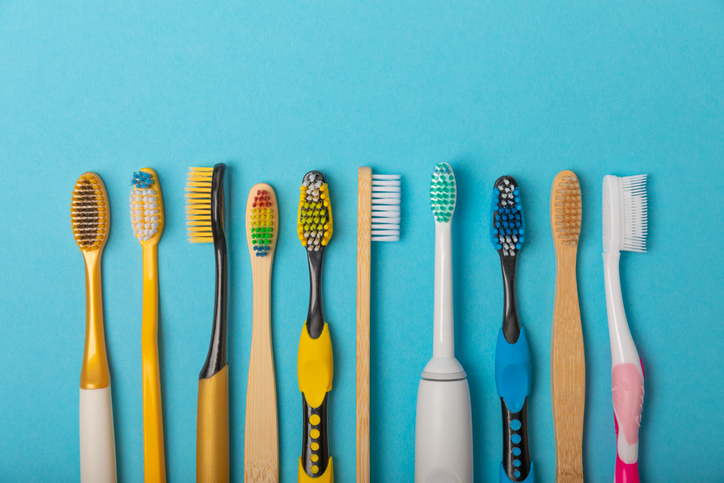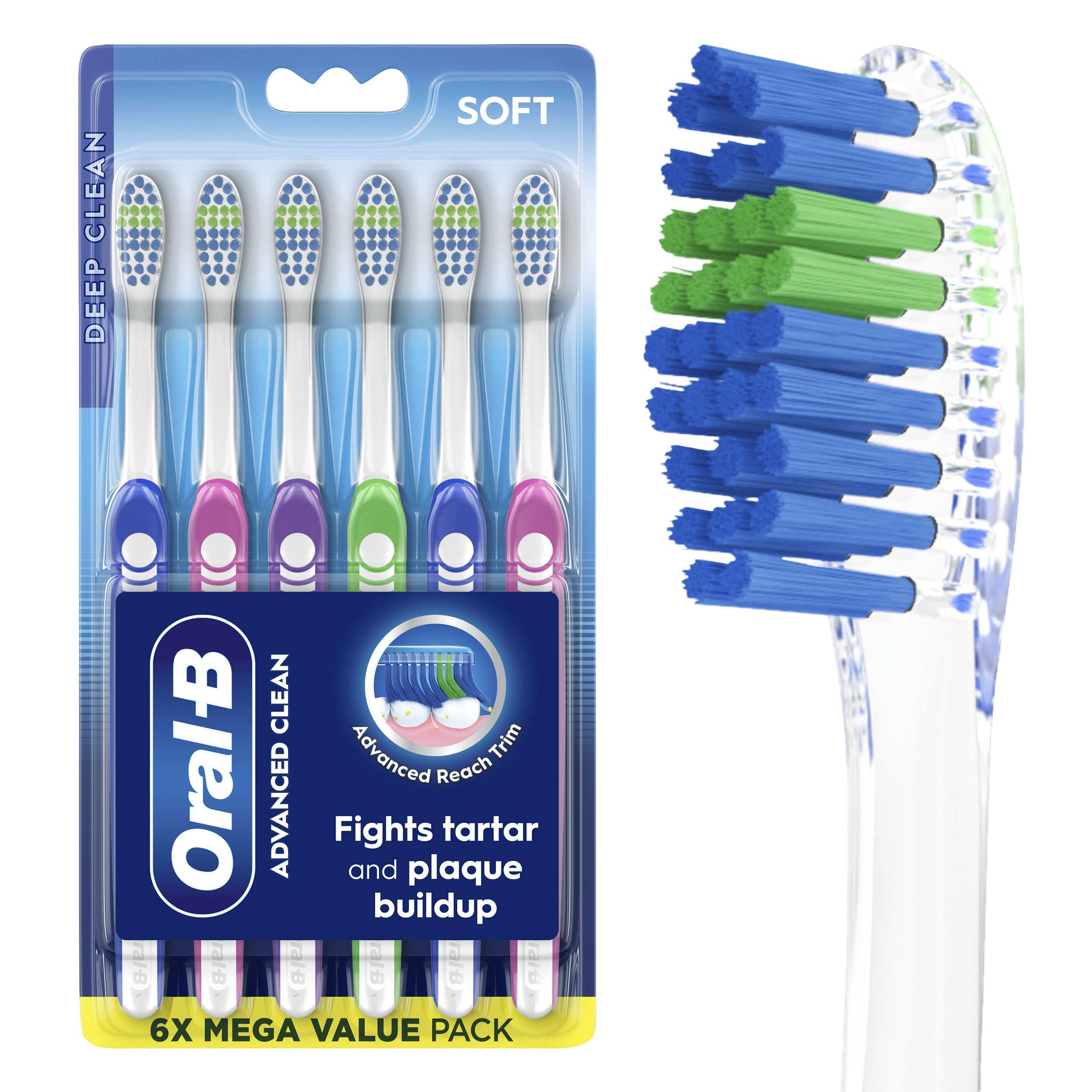Why Dentists Recommend Replacing Toothbrushes Every 3 Months
Finding the Benefits of Choosing the Right Toothbrush for Your Daily Dental Treatment
Selecting the ideal Toothbrush is an important facet of efficient everyday dental treatment. Different kinds of toothbrushes exist, each developed to meet different requirements. Bristle soft qualities can significantly impact plaque elimination and periodontal health and wellness. Furthermore, manage design and Toothbrush dimension play important roles in achieving ideal cleansing. Recognizing these components can result in better oral health. Many ignore these aspects, potentially jeopardizing their oral health. What are the certain benefits of making an informed choice?
Understanding Various Sorts Of Toothbrushes
While many might overlook the relevance of Toothbrush selection, understanding the different sorts of toothbrushes readily available is essential for reliable dental care. Toothbrushes typically drop right into two groups: manual and electric. Manual toothbrushes are extensively available and be available in numerous forms, sizes, and bristle setups. They require individuals to use strategy and stress for reliable cleaning.
Electric toothbrushes, on the other hand, offer automated cleaning activity, usually featuring timers and pressure sensing units to improve cleaning efficiency. Among electric alternatives, oscillating and sonic brushes vary in activity and speed, catering to specific preferences and demands.
Furthermore, specialty tooth brushes exist for details populaces, such as children, people with braces, or those with minimal wheelchair. Comprehending these differences permits consumers to make informed choices, guaranteeing their Toothbrush straightens with their oral health requirements and boosts their overall dental hygiene routine.

The Relevance of Bristle Softness
Picking the best Toothbrush involves greater than simply selecting between handbook and electrical kinds; bristle softness plays a significant duty in oral wellness. Soft bristles are often recommended by oral specialists, as they properly get rid of plaque without damaging the periodontals or enamel. Hard bristles, while seemingly more effective, can result in gum inflammation, economic downturn, and boosted tooth sensitivity over time.
Individuals with sensitive teeth or periodontal concerns must particularly take into consideration soft-bristled alternatives to decrease discomfort throughout cleaning. Softer bristles can get to challenging locations in the mouth, ensuring a complete tidy without causing harm.
Eventually, recognizing the significance of bristle soft qualities can significantly enhance everyday dental treatment, promoting healthier gum tissues and teeth. Selecting the proper bristle type is a crucial step in preserving perfect oral hygiene, as it contributes not only to cleansing efficacy but also to general dental health and convenience throughout brushing.
Exactly How Take Care Of Design Influences Your Cleaning Strategy

Additionally, manage length and grasp texture can influence the angle at which the Toothbrush is held, impacting exactly how properly plaque is gotten rid of from all tooth surfaces. A non-slip grasp can enhance security, making it easier to reach difficult areas, while a much longer handle may permit for far better accessibility in the back of the mouth. Ultimately, the right manage layout can promote much better cleaning habits, resulting in boosted dental wellness outcomes and a more pleasurable cleaning experience for users.
The Role of Toothbrush Size in Efficient Cleansing
Toothbrush size plays an important function in attaining reliable cleansing throughout oral health regimens. A tooth brush that is too huge see may struggle to get to the back teeth and other hard-to-access areas, potentially leaving plaque and food fragments behind. On the other hand, a smaller Toothbrush can browse these tight areas more efficiently, promoting comprehensive cleaning.
The size of the Toothbrush head should straighten with a person's mouth dimension; a well-fitted brush permits better maneuverability, boosting overall cleaning performance. In addition, the bristle setup on the Toothbrush can affect its cleansing performance. Toothbrushes. A small head with purposefully positioned bristles can adjust to numerous tooth surface areas, making certain extensive insurance coverage
Ultimately, choosing the ideal Toothbrush size is vital for maximizing cleaning potential, adding to boosted oral health and wellness and avoiding potential oral issues. This choice, incorporated with proper Discover More Here cleaning strategies, can substantially improve the effectiveness of day-to-day oral treatment routines.
Tips for Preserving Your Toothbrush for Optimum Health
Maintaining a toothbrush in ideal problem is vital for effective dental hygiene, specifically after selecting the best dimension for specific demands. To guarantee optimum hygiene, it is imperative to wash the Toothbrush completely with water after each use to get rid of tooth paste and particles. Keeping the Toothbrush upright in an owner allows it to air completely dry, stopping bacterial development. It is a good idea to keep it separated from other toothbrushes to prevent cross-contamination. If the bristles become torn is important for keeping cleansing efficacy, changing the Toothbrush every 3 to 4 months or quicker. Additionally, preventing sharing toothbrushes stops the transfer of germs. Disinfecting the Toothbrush periodically by soaking it in a mixture of water and antibacterial mouthwash can even more improve hygiene. Making sure that the Toothbrush is not exposed to extreme temperatures, such as in a shut restroom cabinet, will certainly extend its life and effectiveness.
Regularly Asked Inquiries
Exactly how Commonly Should I Change My Toothbrush?
A tooth brush ought to preferably be changed every three to 4 months, or quicker if the bristles end up being frayed. Normal replacements help keep dental health and warranty efficient cleaning, advertising overall oral health and wellness and stopping potential concerns.
Can Electric Toothbrushes Replace Guidebook Ones?
Electric toothbrushes can successfully change hands-on ones, providing remarkable plaque elimination and ease of use. Their built-in timers and pressure sensing units advertise better cleaning routines, making them a popular option for enhanced oral health.
Exist Details Toothbrushes for Children?
Yes, there specify toothbrushes created for youngsters. These toothbrushes commonly include smaller heads, softer bristles, and vivid layouts to motivate proper brushing behaviors and make dental care satisfying for young individuals.
What Are the Ecological Effects of Toothbrushes?
Toothbrushes add to ecological problems largely through plastic waste. Numerous are non-biodegradable, leading to contamination. In addition, the manufacturing procedure eats sources, highlighting the need for lasting alternatives, such as bamboo or recyclable products, to mitigate these influences.
Can Using a Hard-Bristled Toothbrush Damage Teeth?
Utilizing a hard-bristled Toothbrush can certainly damage teeth by causing enamel disintegration and gum tissue inflammation. Oral specialists commonly suggest softer bristles to effectively tidy without hurting oral health and wellness, stressing the value of appropriate Toothbrush selection.
